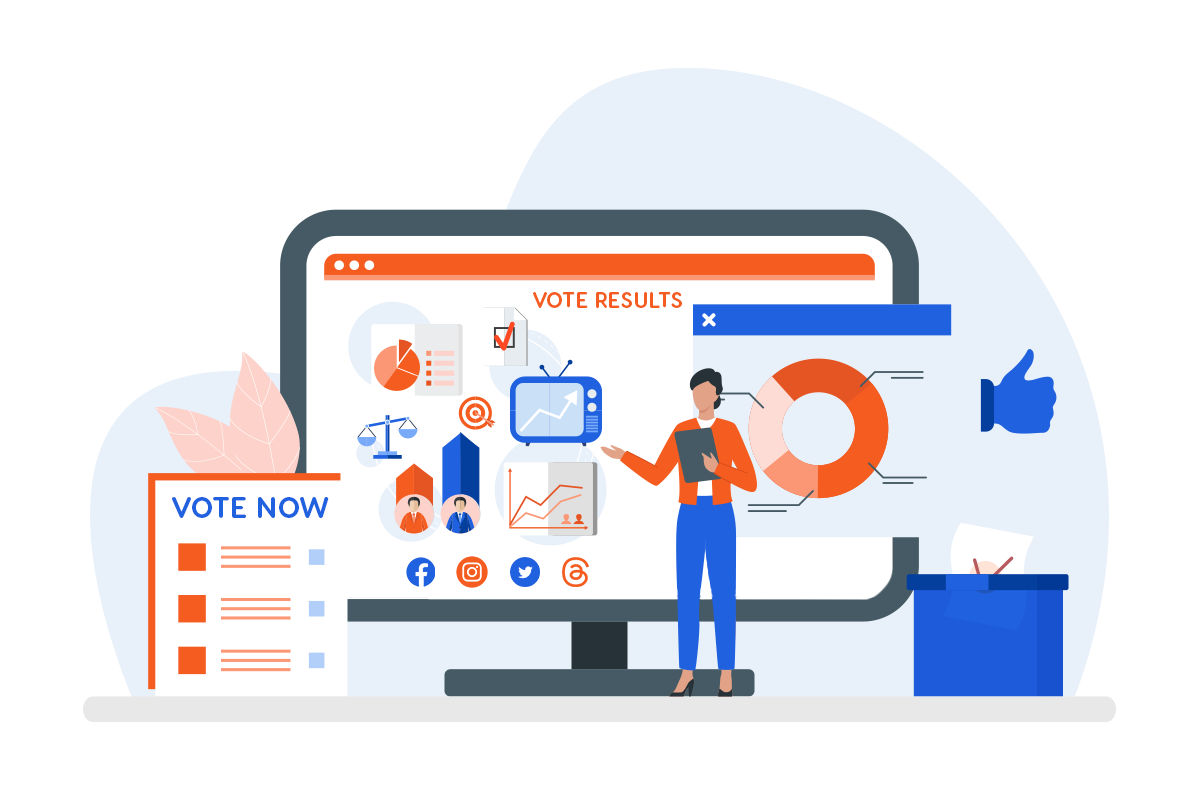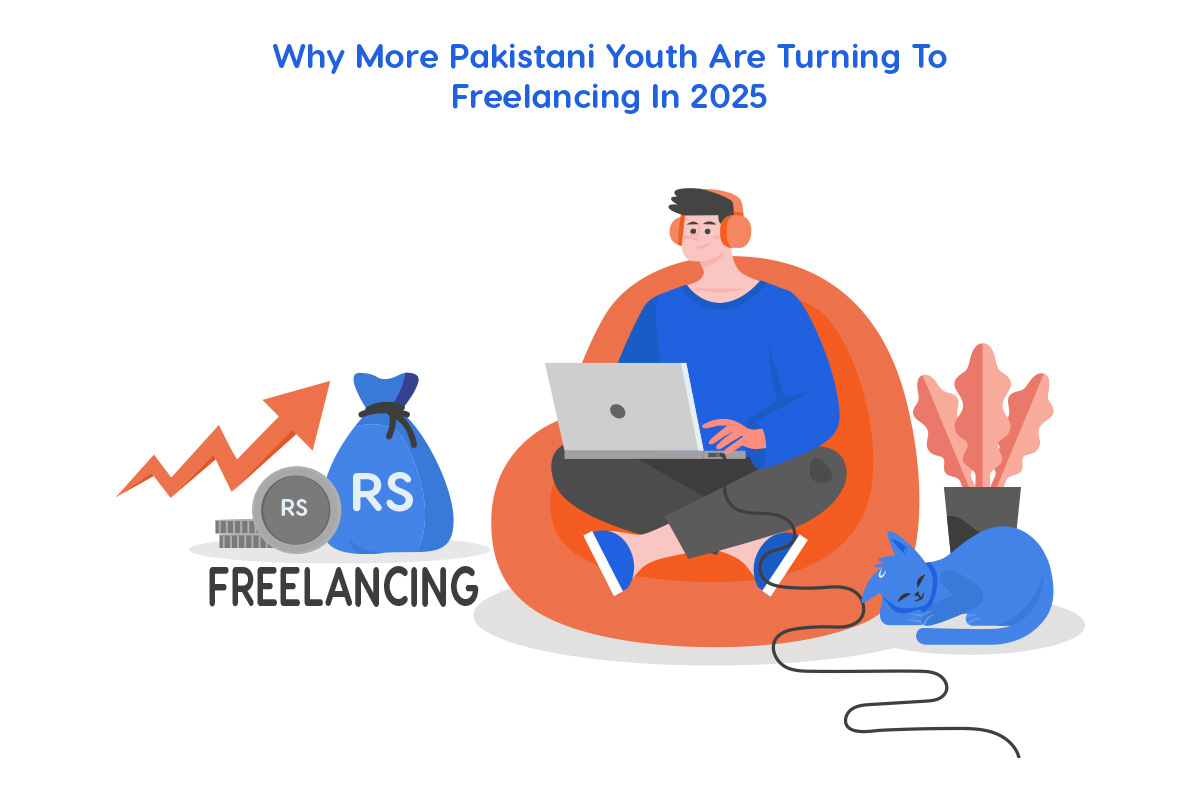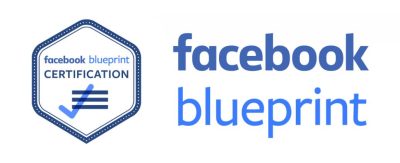Facilitating faster and more accessible information exchange worldwide, Instagram, Facebook, Twitter, Snap Chat, and LinkedIn, among other platforms, have become an integral part of our lives. Social media has emerged as an influential tool in political affairs because it can quickly amplify messages via previous digital platforms.
Recent events in Pakistan are a stark reminder of this reality. The country’s political arena has been volatile recently, with surprising new developments occurring relatively quickly. In addition, the growing use of social media platforms extended to political deliberations and an outpouring of emotions on various platforms.

In Pakistan Independent electronic media outlets are increasingly becoming the focus, rather than the source, of news coverage about the country. They were liberalized in 2002 and are regarded as proof of Pakistan’s democratic credentials. However, they are also viewed as a destabilizing force, causing political instability, hijacking foreign relations, and encouraging extremism.
Can Pakistan’s press thrive as an independent force, or will the Pakistani establishment co-opt it?
With so much information coming in from various sources, it is easy for the general public to become misled. The spread of unverified and fake political News has become the norm. It is necessary to remember that only some disseminated information is correct and may be motivated by posterior reasons.
It is clear that social media is becoming a pervasive force and will resume playing an essential role in domestic Pakistani politics. The world of social media is a game of narratives and counter-narratives. Influencing public opinion is more critical and demanding than ever for various stakeholders, and social media is becoming an invaluable tool in this regard. At the same time, these platforms can be used to gauge Pakistani people’s moods at any given time.
The new media environment is dynamic, evolving in novel, sometimes unexpected ways that have profound implications for democratic governance and politics. The way government institutions operate, how political leaders communicate, how elections are contested, and how citizens engage have all been dramatically altered by new media.
- It is worth noting that Pakistan has the world’s second-highest percentage of the youth population, which has changed Pakistan’s political landscape.
- Among social media platforms, Facebook is the most widely used for political communication, though Twitter is the most commonly used globally.
In 2008, the impact of social media on Pakistan’s political landscape began to multiply. Because of Pakistan’s large youth population, politicians try to convince them to vote for them. Therefore, social media’s popularity among young people has made it the most appealing platform for political communication during election campaigns.
Political communication campaigns are targeted using large and popular social media platforms such as Facebook, Twitter, and YouTube. Social media use for political marketing is now a widespread practice all over the world. All major political parties maintain an active presence on social media platforms to communicate their policies and opinions effectively.
Only when elections are a functioning democratic mechanism does dissatisfaction with the government translates into lower vote counts for the incumbent. Unfortunately, Pakistani people in autocratic authorities often do not have the luxury of political turnover through elections. Instead, they must protest in the streets to express their discontent, eventually leading to a regime change.
Do social media make street protests easier?
Low entry barriers in social media make spreading information critical of the Pakistani government more accessible. It is essential in autocratic regimes where the government tightly controls traditional media. This increases the number of informed citizens in Pakistan dissatisfied with their governments and, as a result, may be willing to participate in political protests.
Furthermore, horizontal information flows between social media users, enabling them to exchange logistical details about upcoming events and coordinate their tactics on the fly. This helps to solve collective-action problems and increases the likelihood of protests by increasing the chance that people who are potentially ready to participate in political demonstrations do so.
A widely held concern is that the rise of new online media, particularly social media, is associated with a significant increase in the spread of false news stories. However, no systematic study has been conducted to determine whether false NewsNews is more or less prevalent today than in the past. Pakistani Politicians must remain accountable to the public because citizens elect them for the betterment of themselves and their country. The ultimate goal is to obtain answers allowing politicians to improve their relationships with ordinary citizens of Pakistan through social media. They can also use social media platforms to raise awareness of their cause. People need social media because communication is a basic necessity in this global technological era.
Because social media is still relatively new, we are only beginning to see its impact on society. However, there will undoubtedly be many political changes as a result of social media. For example, there are now propositions for internet voting, which could lead to increased election participation. This could increase the power of social media by allowing people to vote points after reading the latest comments or links on Facebook or Twitter. Other advancements will also have an impact on politics. For example, social media polling techniques will become more common and, hopefully, more accurate. In addition, there will be more virtual political rallies and town halls. As social media grows in popularity, its influence on politics will only grow. It will be fascinating to see how this develops.
One of the advantages of social media in politics is the increased ability of voters to interact with candidates and elected officials. Previously, if you wanted to meet a politician or a candidate, you had to attend a live event. This is something that only some are capable of.
Thanks to technological advances, it is possible now to participate in virtual events. At events, attendees can watch live-streaming events and interact with politicians and candidates.
The speed with which News, poll results, and rumors are shared is one of the ways social media has transformed politics. Unlike in the days before the Internet, Pakistani people had to stay for the next newspaper or TV news show to get the latest notification. Now online NewsNews is obtainable 24 hours a day, seven days a week.
This has been taken a step further by social media. At the same time, many websites provide access to NewsNews at all hours. Most people in Pakistan consume more time on sites such as Facebook and Twitter than on serious information or political websites. This means that whenever you log on, you will see all of the most recent trending news stories and ideas shared by your friends.
All Pakistani news channel debates and broadcast political News. But the harsh reality is that they are not speaking objectively. Moreover, they only support one political party, such as the PTI, PPP, or PMLN. Therefore, they are not valuable information to the general public.
- The question is, do they have any information other than politics?
- Is it only politics that is required to run a channel?
Pakistani channels are only interested in increasing their ratings by exploiting political situations. Talk shows are held, politicians are invited, and they criticize one another. It’s about growing your rating, earning money, and becoming famous. They enjoy it as a form of entertainment. Furthermore, anchors’ behavior is below average. These channels don’t care about the rules, and their voice reaches the heavens. They appear to be investigating and judging others. They only know how to criticize others and have forgotten about their actual responsibilities. On the other hand, only some journalists are the same. Some people are genuinely fulfilling their duties. Iqrar—Hassan of Pakistan is an example of someone who works for the welfare of others. He also assists them in obtaining their rights.
We made some requests to the government after explaining the role of Pakistan’s negative image worldwide.
- First and foremost, so-called fake journalists must be outlawed. Otherwise, they will continue to harm Pakistan’s image worldwide by spreading it without due diligence. Furthermore, these phony journalists should be barred from sharing other people’s videos and applying fake News on social media.
- Second, those who are capable should be appropriately registered. They, like other professions, should be granted a license.
- Third, existing certified and famous journalists should be controlled and strictly ordered to fulfill their duties properly, improve their manners, behave humanely, and refrain from judging anyone.
- Fourth, they should be made aware that they must be conscious right now and refrain from participating in wasteful politics.
Final Words
Finally, Pakistani news channels should be appropriately checked and balanced. For example, all trendy talk shows should be banned, and media should be directed to air educational programs. In this way, people can benefit rather than be depressed.





